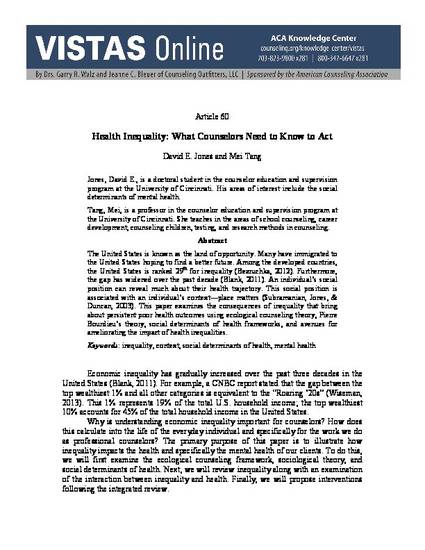
Article
Health Inequality: What Counselors Need to Know to Act
Vistas Online
(2016)
Abstract
The United States is known as the land of opportunity. Many have immigrated to the United States hoping to find a better future. Among the developed countries, the United States is ranked 29th for inequality (Bezruchka, 2012). Furthermore, the gap has widened over the past decade (Blank, 2011). An individual’s social position can reveal much about their health trajectory. This social position is associated with an individual’s context—place matters (Subramanian, Jones, & Duncan, 2003). This paper examines the consequences of inequality that bring about persistent poor health outcomes using ecological counseling theory, Pierre Bourdieu’s theory, social determinants of health frameworks, and avenues for ameliorating the impact of health inequalities.
Keywords
- Inequality,
- Context,
- Social Determinants of Health,
- Mental Health
Disciplines
Publication Date
2016
Citation Information
D. Jones and M. Tang. "Health Inequality: What Counselors Need to Know to Act" Vistas Online Vol. 60 (2016) p. 1 - 11 Available at: http://works.bepress.com/david-jones3/4/
